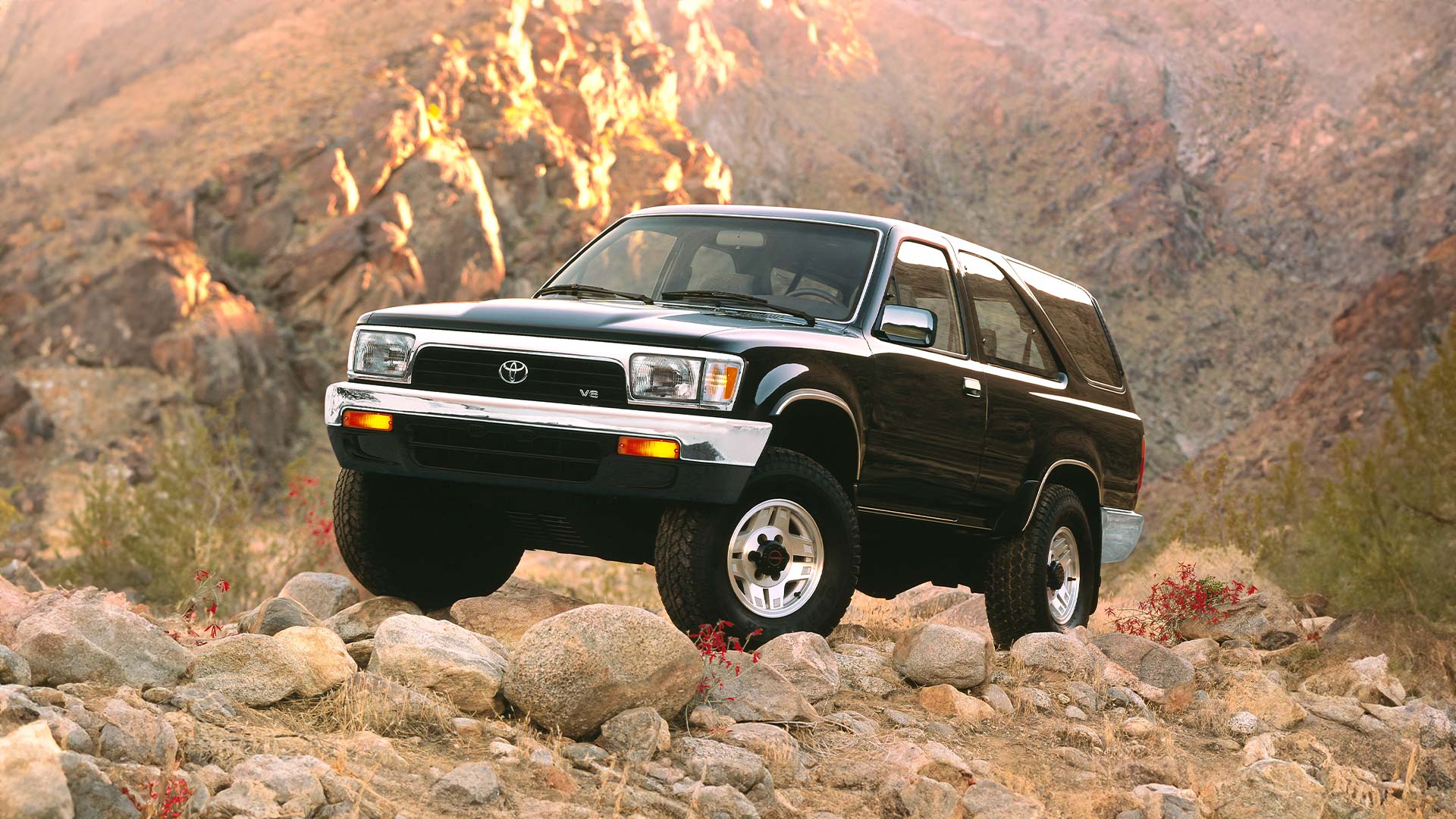
Finding the best replacement tires for your second generation Toyota 4Runner can be difficult. Rolling Big Power specializes in offering tire upgrades for the 4Runner platform. Additionally, RBP has a wide range of niche and unique tire sizing options that accommodate aftermarket wheels and suspension setups.
The second generation 4Runner utilizes 15 inch and 16 inch tire sizes, depending on trim level. The table below shows factory tire sizes for the 1989-1995 Toyota 4Runner, along with flotation size conversion to help make shopping for off-road tires easy.
| Diameter | Standard Sizing | Flotation Sizing |
|---|---|---|
| 15 Inch | 225/75R15 | 28.29 x 8.86 x 15 | 15 Inch | N/A | 31x10.50R15LT | 16 Inch | 265/70R16 | 30.61 x 10.43 x 16 |
*Note: The Light Truck designation is denoted with LT.
The third generation 4Runner utilizes tires from 15 inches up to 16 inches, depending on the trim level. The only change from the prior generation is the removal of the flotation sizing option. The table below shows factory tire sizes for the 1995-2002 Toyota 4Runner, along with flotation size conversion to help make shopping for off-road tires easy.
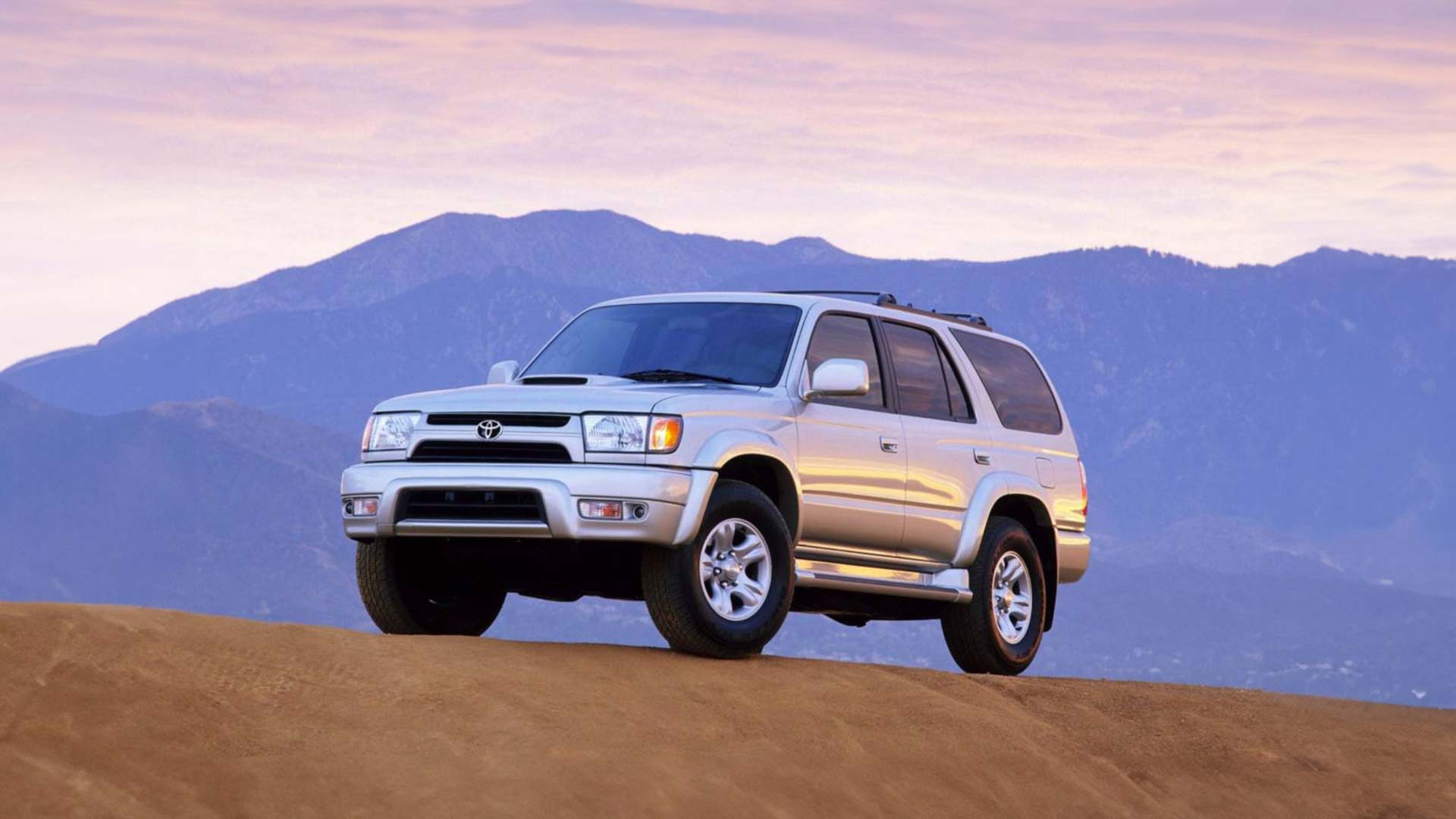
| Diameter | Standard Sizing | Flotation Sizing |
|---|---|---|
| 15 Inch | 225/75R15 | 28.29 x 8.86 x 15 | 16 Inch | 265/70R16 | 30.61 x 10.43 x 16 |
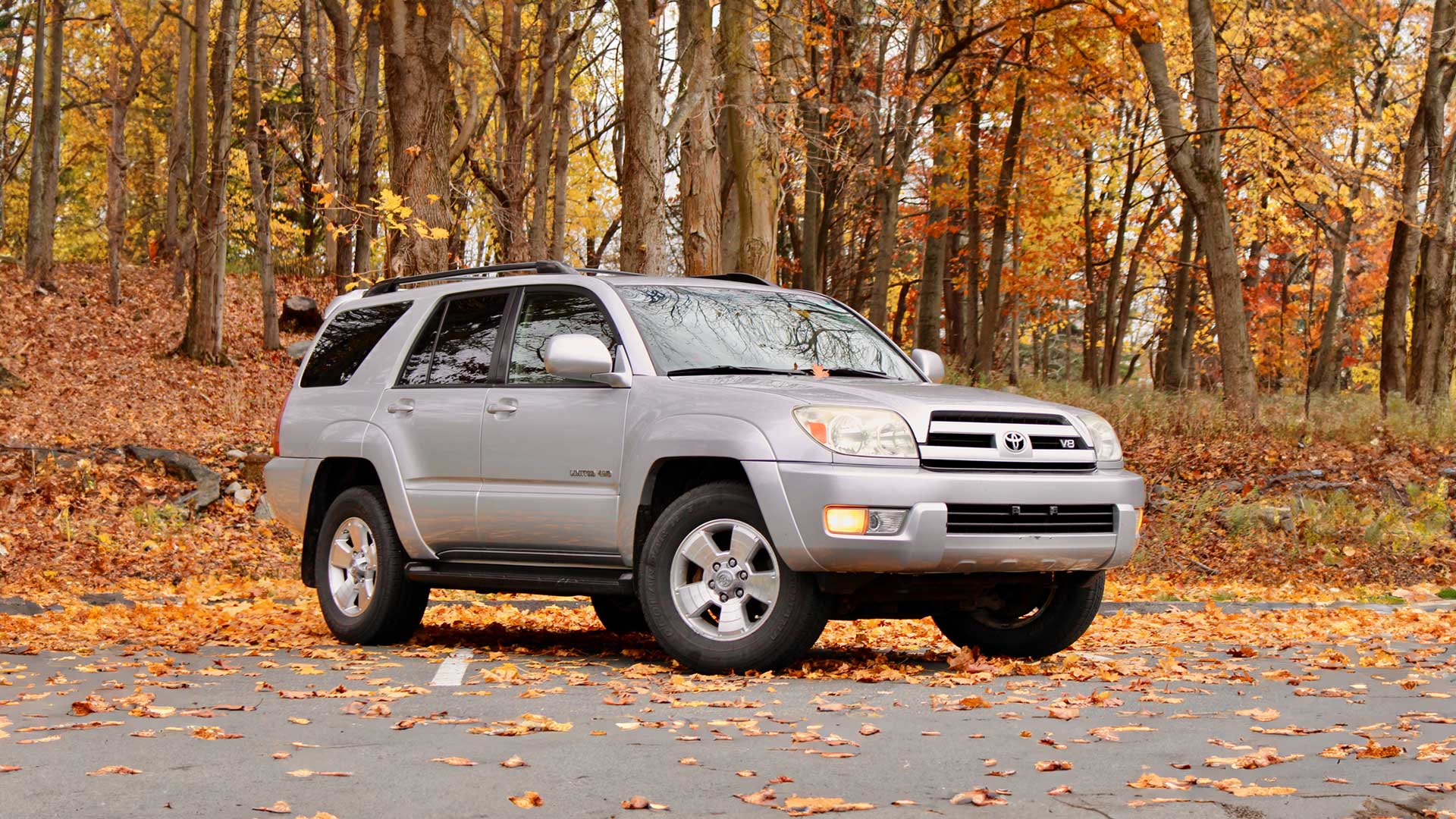
The fourth generation Toyota 4Runner utilizes tires from 16 inches up to 18 inches, depending on trim level. This is the first time Toyota introduced an 18 inch option for the 4Runner. The table below shows factory tire sizes for the 2003-2009 Toyota 4Runner, along with flotation size conversion to help make shopping for off-road tires easy.
| Diameter | Standard Sizing | Flotation Sizing |
|---|---|---|
| 16 Inch | 265/70R16 | 30.61 x 10.43 x 16 | 17 Inch | 265/65R17 | 30.56 x 10.43 x 17 | 18 Inch | 265/60R18* | 30.52 x 10.43 x 18 |
*Note: The Light Truck designation is denoted with LT.
*Note: Tire size marked with an asterisk denotes that the size was only available on the facelifted model years.
The fifth generation Toyota 4Runner utilizes 17 inch and 20 inch tires, depending on trim level. The option for a 16 inch and 18 inch were completely removed. The table below shows factory tire sizes for the 2009-2025 Toyota 4Runner, along with flotation size conversion to help make shopping for off-road tires easy.
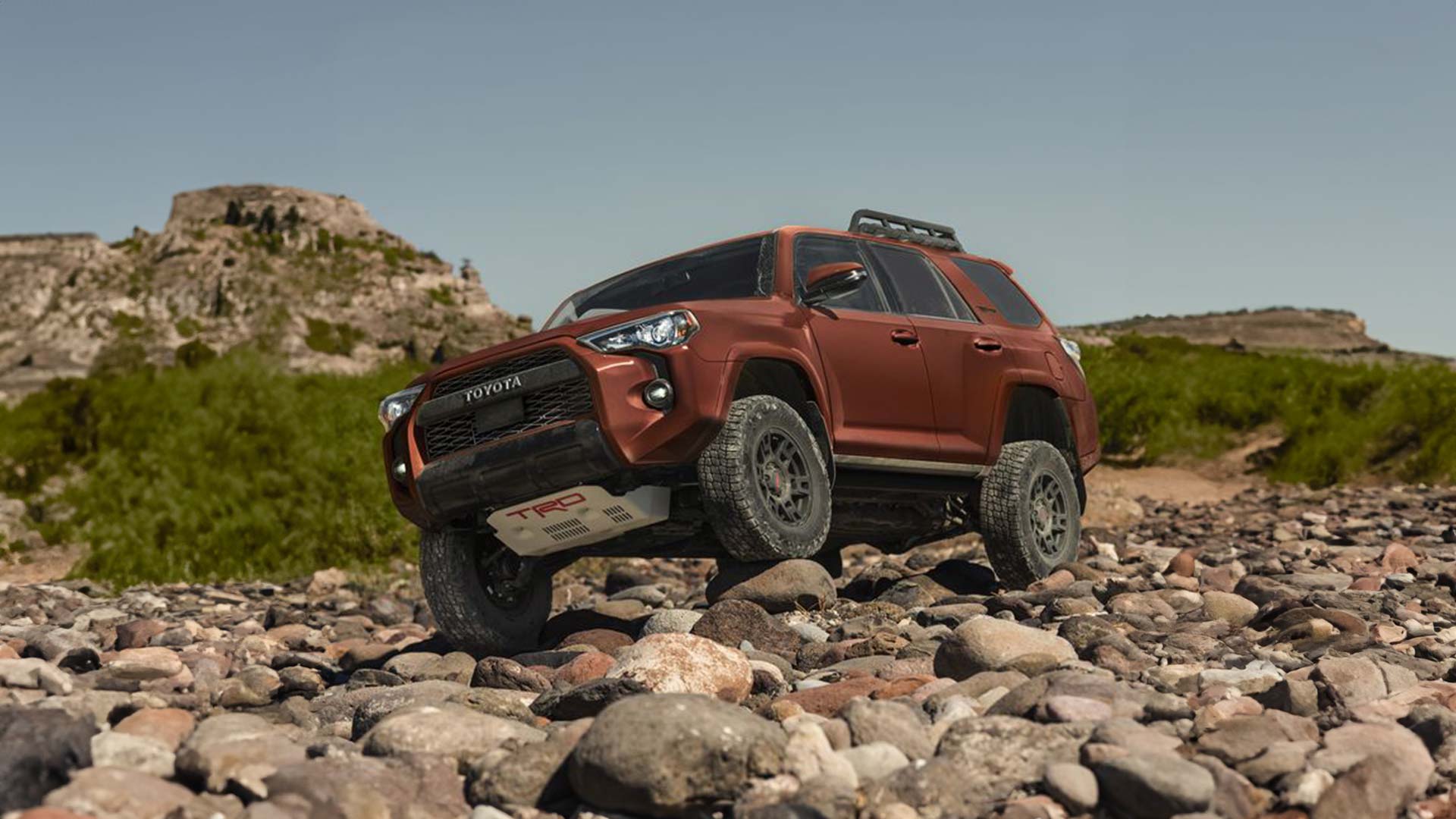
| Diameter | Standard Sizing | Flotation Sizing |
|---|---|---|
| 17 Inch | 265/70R17 | 30.56 x 10.43 x 17 | 20 Inch | 245/60R20 | 32.52 x 10.43 x 20 |
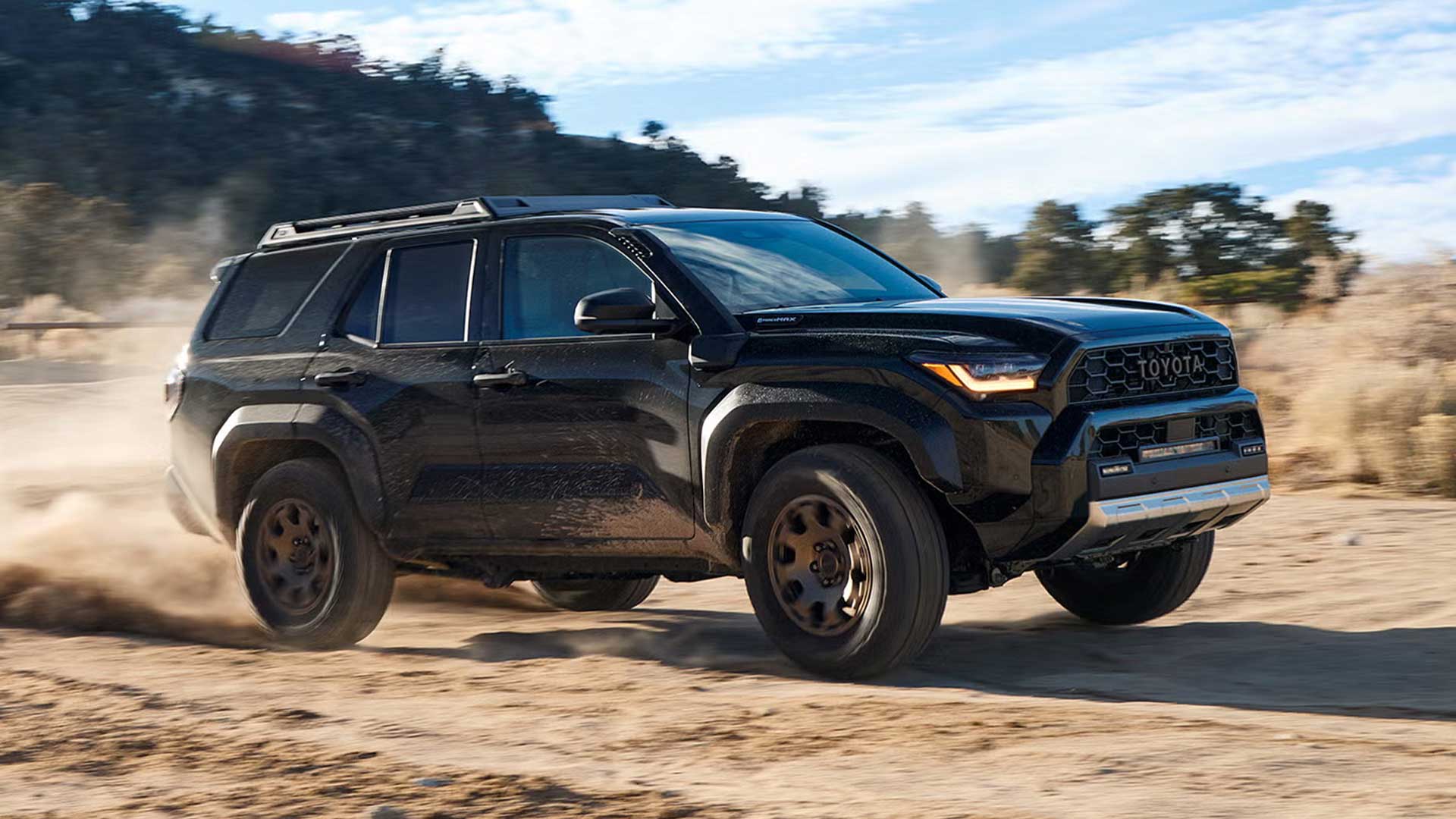
The latest sixth generation of the Toyota 4Runner uses very similar sizes as the last generation, with the biggest difference in the now offered 18 inch sizing option. The table below shows factory tire sizes and its flotation size conversion to make shopping for off-road tires easy.
| Diameter | Standard Sizing | Flotation Sizing |
|---|---|---|
| 17 Inch | 245/70R17 | 30.5 x 9.65 x 17 | 18 Inch | 265/70R18 | 32.61 x 10.43 x 18 | 20 Inch | 245/55R20 | 30.61 x 9.65 x 20 |
The two things that affect tires are time and mileage. Naturally, the compounds on tires have a limited lifespan as they begin to breakdown over time. The mileage on a tire is only a general indication of it’s wear and usage. Neither time nor mileage are accurate indicators of a tire’s usability. The reason for that is because factors such as tire storage and care can improve or diminish lifespan. Typically most tires are manufactured to last at least five years under normal circumstances. If your tires are older than 5 years, it may be a good idea to consider replacements.
Reading the sidewall and understand tire sizing options can seem difficult at first. Once you learn the basics of what these numbers and markings mean, it becomes much simpler. Oftentimes original equipment tires use standard sizing designations, such as 255/70R17. However, when upgrading tires, especially for the Toyota 4Runner, you may come across flotation sizing designations. These will typically read as 35×12.50×17.
Most tire manufacturers will give a suggested rotation interval. The OEM tire rotation interval for the Toyota 4Runner is 5,000 to 7,000 miles. Regularly rotating your tires is a great way to extend the life of your tires. Learn more about proper off-road tire rotation.
The Toyota 4Runner is a purpose-built truck. The best tires heavily depend on your driving style, temperature, and weather. For example, a driver who often drives on unpaved or off-road situations would require a different tire than a driver who only uses their truck for commuting.
There is no one answer to this question. Every truck and every tire require a different tire pressure. The best way to find what tire pressure is required is to check the driver's side door for a label that displays the recommended tire pressure for that vehicle. It's important to note that this recommendation changes depending on the load of passengers, as well a cargo load. Learn more about light truck load ratings.
Every tire has a UTQG rating that provides information regarding number of miles the tire is expected to last. However, this number is an estimate. How you drive your vehicle has a big impact on the life expectancy of a tire.
As stated above, the way you plan on driving your Toyota 4Runner will help you make a better decision on what tires to choose. If off-roading and driving on unpaved roads is a normal occurrence, then dedicated off-road tires may be beneficial.